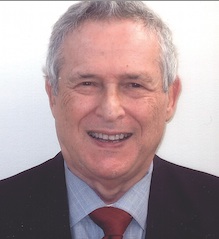 |
| Arthur Solomon |
Congratulations. Your client loves the draft of your sports marketing publicity plan. It includes several athletes recommended for the pivotal role of spokesperson. Now the client says, “Give me a one-name recommendation."
Ah, there’s the rub: How to choose someone who will be easy to work with, not identified with other products and is well liked by the media. Remember, athletes who are not nice to reporters might not receive a warm welcome when you attempt to set up interviews. And, most important, character counts more than statistics. You don’t want an athlete embarrassing your client with unsportsmanlike conduct.
During and after my nearly 25 years at Burson-Marsteller, the task of choosing or recommending an athlete for publicity purposes was often my responsibility. Many clients’ knee-jerk reaction was to want a current athlete. But, my first choice, which most often was agreed to, was to suggest a retired athlete with a good reputation.
Here’s my reasoning for preferring retired athletes:
-
Current athletes are seen by media all during their playing seasons and reporters prefer to speak to them about contemporary issues.
-
Retired athletes are frequently not available to the media; they provide fresh copy and can tell stories about the old days; nostalgia is a big part of sports.
-
Many current athletes have multiple sponsorship agreements, making it difficult to work in the client plug and/or limiting the commercial reference to your client.
-
Most retired athletes are unlikely to be tied to another sponsor.
-
Many current athletes are wary of the media and are guarded during interviews.
-
Retired athletes are often glad of again being recognized and are expansive during interviews.
-
Because of their huge salaries, current athletes demand fees that many small- and medium-size clients cannot afford.
-
Retired athletes, many of whom played before big paydays, often are more reasonable about money and are not budget breakers.
-
Retired athletes often negotiate their own contracts and are more cordial during negotiations.
-
Current athletes are difficult to schedule for publicity appearances because of their travel schedule.
A significant reason that I favor retired athletes is it's easy to determine if they have passed the “no unsportsmanlike conduct test." They are less likely to end up in stories that can be covered by either police or sports reporters, unlike too many active athletes who are tainted with steroids abuse, or worse, criminal charges.
An equally important reason that I prefer retired athletes is the media knows they are being offered for interviews for a specific commercial reason and thus are given more latitude when working in the program’s message points. (If I were a client, my first question to the PR exec after an interview would be, “Where are my message points?”) An interview limiting client mentions to “is a spokesperson for…etc.” with no message points might satisfy the PR exec, but what good does it do the client?
A few of my favorite retired athlete spokespersons were Robin Roberts, Bob Feller, Ralph Kiner, Monte Irvin and Bob Mathias. They all had the same traits in common: Easy to work with, cooperative, good reputations with the media, good storytellers and reliable. If they said, “I’ll be there at 2 p.m.,” they were always there. Sparky Anderson was also a favorite. He was a delight to work with between baseball managing jobs and when he returned to managing, he was just as nice.
This brings me to basic questions I always ask clients and account executives considering athlete tie-ins:
-
Why do you want an athlete tie-in?
-
Do you think an athlete tie-in is the only method available to achieve your goal?
- Do you understand the risk-reward ratio of having an athlete be a vital component in the marketing mix?
Then I would ask myself the following questions:
-
Which athletes are natural fits for the publicity program?
-
Would the athletes be of interest to more than just sports media?
- If I were still a reporter, why would I want to interview the athletes?
After those questions are answered, I speak to media friends and ask them if they know of negative reasons that the athletes being considered should be eliminated.
Of course, the growing importance of new media techniques, like social media, has made it more important than ever that agencies are not starstruck when choosing an athlete. Athlete spokespersons must be both corporate and media savvy and have an untarnished reputation. We all know of instances where athletes have received negative news coverage because of statements or tweeted messages that clients would not have approved of. This is most likely to happen with current athletes. No client needs that.
Arthur Solomon was a senior VP/senior counselor at Burson-Marsteller, and was responsible for restructuring, managing and playing key roles in some of the most significant national and international sports and non-sports programs. He now is a frequent contributor to public relations and sports business publications, consults on public relations projects and is on the Seoul Peace Prize nominating committee. He can be reached at [email protected]
